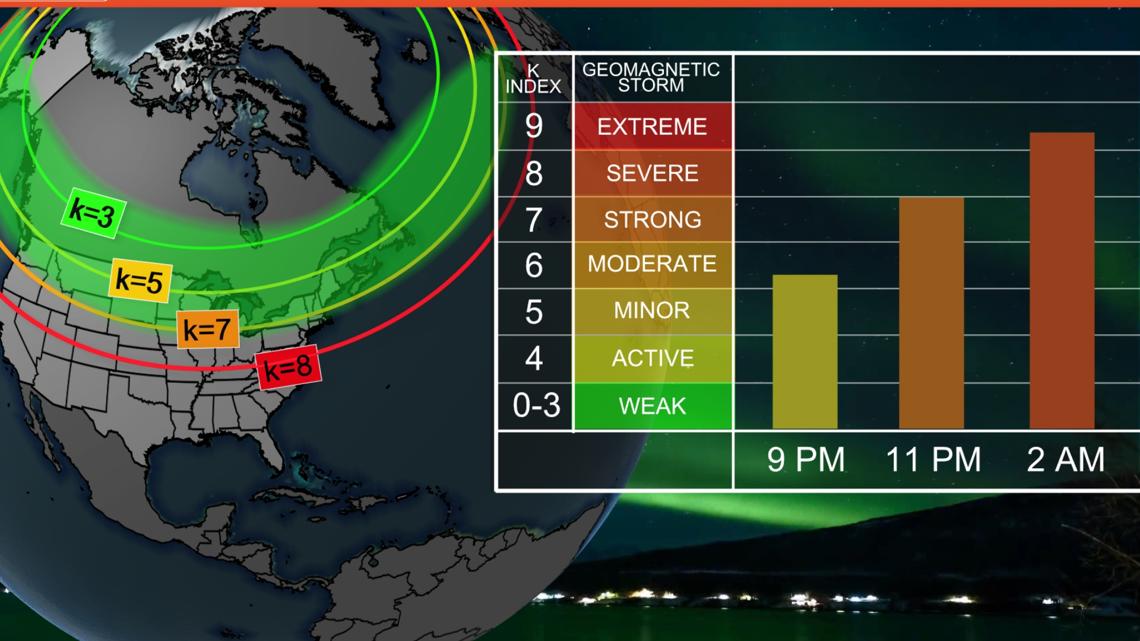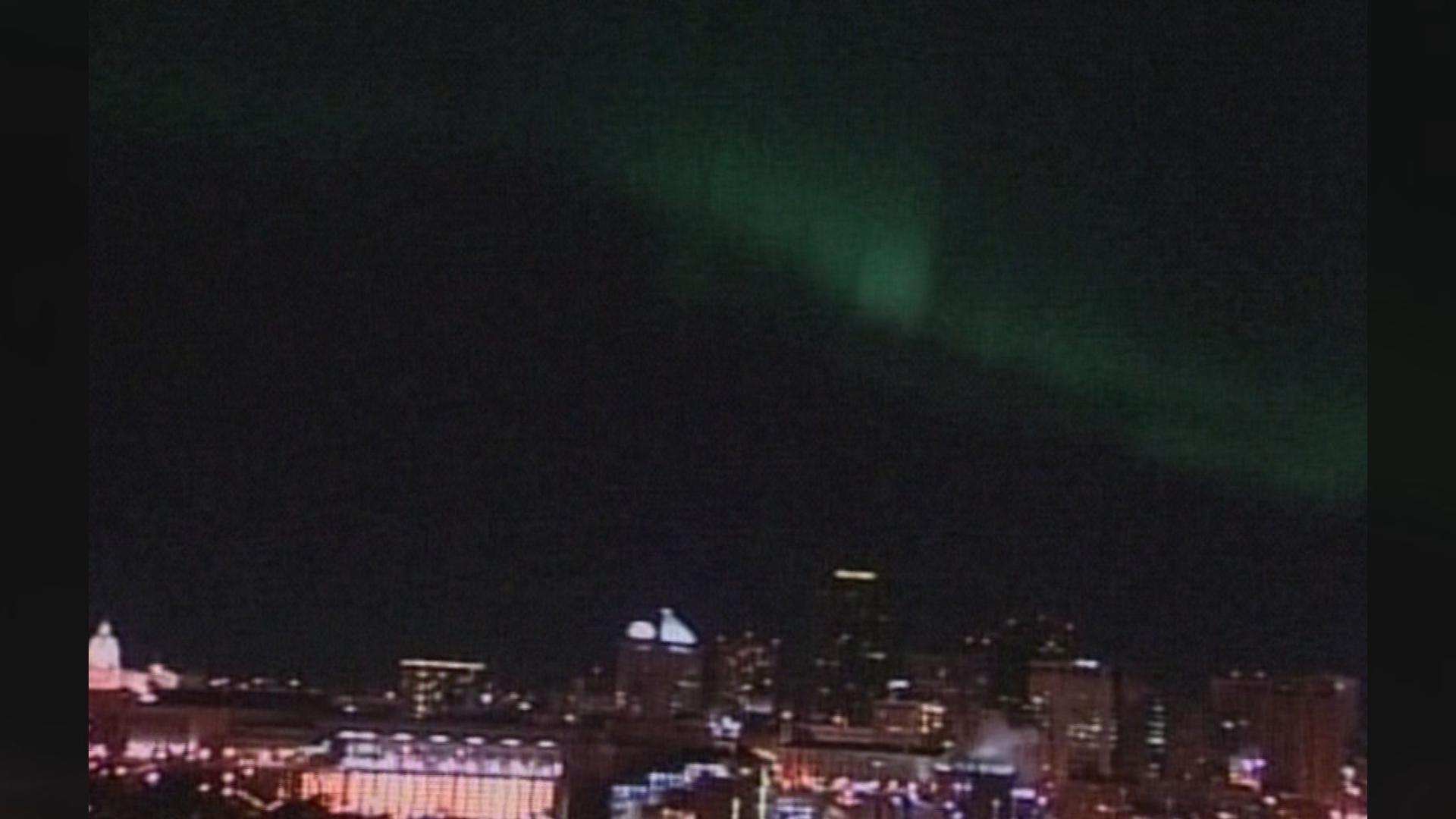KNOXVILLE, Tenn. — Aurora borealis. It's difficult to say three times fast and even more difficult to see in Tennessee. But occasionally, the stars line up just right and the sun "burps" out enough plasma to create a powerful geomagnetic storm that can bring the Northern Lights to the South.
The National Oceanic and Atmospheric Administration said Friday that its space weather forecasters saw at least seven coronal mass ejections from the sun, which will bring a potentially "severe" geomagnetic storm to Earth that could last through Sunday.
NOAA said the solar storm could make the aurora visible as far south as Alabama, but there's going to be a good bit of luck involved for us to actually see the Northern Lights.
"This is an unusual and potentially historic event," Clint Wallace, the director of NOAA's Space Weather Prediction Center, said.
The last time the aurora could be seen in Tennessee was in Nov. 2004 and Jan. 2005 after bursts of solar plasma caused similarly severe solar storms. Most of East Tennessee appears to have missed the Jan. 2005 event because of a snowstorm, but the 2004 event that happened for three days beginning Nov. 7 could be seen here and as far south as Texas.
Below is archive video of the 2004 event, including video from Nashville and pictures from across Tennessee:
The last time a Severe Geomagnetic Storm Watch was issued was Jan. 2005.
A few things will need to line up just right for Tennessee to see the aurora. First, the magnitude of the geomagnetic storms will need to be "extreme" enough to bring the Northern Lights far south. NOAA said the possibility is there, but not guaranteed, which is why it issued the watch through Sunday. States to our north will have a higher chance of seeing it.
At the moment, it appears the peak of the geomagnetic storm will be sometime early Saturday morning around 2 a.m. If Tennessee does see it, then it will likely only be visible for a few moments during its peak.
"These hours of active aurora expand towards evening and morning as the level of geomagnetic activity increases," according to the Storm Prediction Center.


The National Weather Service in Morristown said the next luck factor is cloud cover. Thankfully, mostly clear skies are expected overnight and Saturday!
Finally, if you want to see the lights in the sky -- you will need to head to places where there aren't a lot of lights on the ground. Light pollution will make it difficult to see the aurora, so you will want to head out of Knoxville and find a spot away from city lights. If you can see the Milky Way in the night sky, that means you've got a good view.

